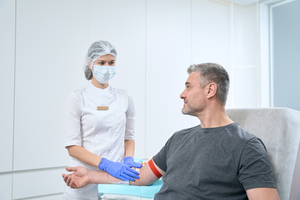Book urgent care & walk-in clinics near me in New York, NY
Own a clinic? Add your location.
Help patients book appointments with you on Solv. It's free!
21 instant-book locations
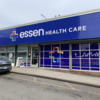
Essen Urgent Care, Marble Hill
Essen Urgent Care
Today
View more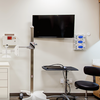
Northwell Health- GoHealth Urgent Care, East 81st
Northwell Health- GoHealth Urgent Care
Today
View more
Northwell Health- GoHealth Urgent Care, New York Virtual
Northwell Health- GoHealth Urgent Care
Today
View more
Optum Urgent Care, Stuyvesant Town
Optum Urgent Care
Today
View more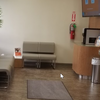
Northwell Health- GoHealth Urgent Care, Greenwich Village
Northwell Health- GoHealth Urgent Care
Today
View more
PromptMD, Jersey City Urgent Care
PromptMD
Today
View more
Today
View more
Live Urgent Care, Hoboken
Live Urgent Care
Today
View more
Today
View more
UMD Care, Long Island City
UMD Care
Today
View more
AM/PM Urgent Care with Englewood Health, Jersey City
AM/PM Urgent Care with Englewood Health
Today
View more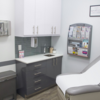
ModernMD Urgent Care, S.E. Williamsburg
ModernMD Urgent Care
Today
View more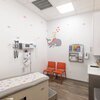
ModernMD Urgent Care, Bedford/Stuyvesant
ModernMD Urgent Care
Today
View more
Northwell Health- GoHealth Urgent Care, Long Island City
Northwell Health- GoHealth Urgent Care
Today
View more
AFC Urgent Care, Union City
AFC Urgent Care
Today
View more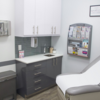
ModernMD Urgent Care, Bushwick
ModernMD Urgent Care
Today
View more
ModernMD Urgent Care, North Utica
ModernMD Urgent Care
Today
View more
Northwell Health- GoHealth Urgent Care, Ridgewood
Northwell Health- GoHealth Urgent Care
Today
View more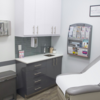
ModernMD Urgent Care, Crown Heights
ModernMD Urgent Care
Today
View more
Northwell Health- GoHealth Urgent Care, Astoria
Northwell Health- GoHealth Urgent Care
Today
View more
ModernMD Urgent Care, Ridgewood
ModernMD Urgent Care
Today
View moreOwn a clinic? Add your location.
Help patients book appointments with you on Solv. It's free!
Urgent Care in NYC
What is urgent care?
Urgent care is a category of walk-in clinic focused on the delivery of immediate, non-emergency care in a dedicated medical facility outside of a traditional emergency room. Urgent care centers primarily treat injuries or illnesses requiring immediate care, but not serious enough to require an ER visit. These centers are typically open after normal business hours, including evenings and weekends, making them a convenient option for those in need of prompt medical attention for non-life-threatening conditions.
Common services and reasons for visit
Urgent care centers offer a wide range of services for various health concerns. Here are some common reasons why people visit:
Minor fractures and sprains: Urgent care centers can diagnose and treat non-life-threatening injuries like minor bone fractures and sprains.
Cuts and burns: Minor cuts, burns, and other skin injuries can be treated at urgent care facilities.
Common illnesses: Conditions like flu, fever, ear infections, urinary tract infections, and strep throat can be diagnosed and treated at urgent care centers.
Diagnostic services: Many urgent care centers provide diagnostic services, including X-rays and laboratory tests.
Preventive care: Some urgent care centers also offer preventive care services like vaccinations and health screenings.
Types of healthcare providers
At an urgent care center, you may encounter a variety of healthcare providers, each with a specific role and level of training. Here are some of the types of providers you might meet:
Physicians: These are medical doctors (MDs) or doctors of osteopathy (DOs) who have completed medical school and residency training. They diagnose and treat a wide range of health conditions.
Nurse Practitioners (NPs): NPs are registered nurses with advanced training and education, often a master's degree or higher. They can diagnose and treat various health conditions, prescribe medication, and may serve as a patient's primary healthcare provider.
Physician Assistants (PAs): PAs are medical professionals who diagnose illness, develop and manage treatment plans, prescribe medications, and often serve as a patient’s principal healthcare provider. They practice medicine on healthcare teams with physicians and other providers.
Registered Nurses (RNs): RNs provide and coordinate patient care, educate patients about health conditions, and provide advice and emotional support to patients and their family members.
Medical Assistants (MAs): MAs complete administrative and clinical tasks in the offices of physicians, hospitals, and other healthcare facilities. Their duties vary with the location, specialty, and size of the practice.
When to go to an urgent care
Urgent care centers are ideal for non-life-threatening conditions that require immediate attention. This could include minor fractures, burns, cuts, sprains, or infections. They are also suitable for handling illnesses like the flu, strep throat, urinary tract infections, or when you need vaccinations, lab services, or x-rays. In New York, NY, many urgent care centers operate outside regular office hours, making them a convenient option when your primary care physician is unavailable.
Urgent care vs emergency room (ER)
While both urgent care centers and emergency rooms provide immediate care, they cater to different medical needs. ERs are equipped to handle life-threatening emergencies such as severe chest pain, stroke symptoms, deep wounds, or severe burns. On the other hand, urgent care centers are ideal for non-emergency situations that still require prompt attention. It's important to note that ER visits usually cost more and have longer wait times compared to urgent care centers. Therefore, for non-emergency situations, visiting an urgent care in New York, NY, can save you both time and money.
Urgent care vs primary care
Primary care physicians are your go-to for routine check-ups, preventive care, and managing chronic conditions. However, they often operate on regular office hours and may not be available for immediate needs. Urgent care centers, on the other hand, offer extended hours and can handle a variety of conditions that require immediate attention. While they don't replace the role of a primary care physician, they complement them by offering accessible care when you can't wait for an appointment. In New York, NY, urgent care centers are a practical choice when you need immediate care outside your primary physician's hours.
Urgent care vs retail clinic
Retail clinics, often found in pharmacies or supermarkets, provide basic healthcare services such as vaccinations, health screenings, and treatment for simple ailments like colds and minor skin conditions. Urgent care centers offer a broader range of services and can handle more complex conditions that retail clinics can't, such as minor fractures and burns. They also typically have more advanced equipment like x-ray machines. Therefore, if your condition is beyond the scope of a retail clinic, an urgent care center in New York, NY, is your best bet.
Urgent Care Centers in New York, NY
With a bustling city like New York, urgent care centers are an essential part of the healthcare landscape, providing immediate and convenient medical services to its diverse population.
Finding Nearby Urgent Care
Locating an urgent care center in New York City is straightforward, thanks to the city's extensive healthcare network. Whether you're in Manhattan, Brooklyn, Queens, The Bronx, or Staten Island, urgent care is within reach.
Manhattan
As the city's economic and administrative center, Manhattan is home to numerous urgent care centers. These facilities are strategically located near residential and commercial areas for easy access.
Brooklyn
Brooklyn, known for its cultural diversity, also boasts a variety of urgent care centers that cater to different healthcare needs, from minor injuries to routine check-ups.
Queens
Queens, the largest borough by area, has multiple urgent care facilities spread across its neighborhoods, ensuring that residents have access to immediate care when needed.
The Bronx
Urgent care centers in The Bronx are conveniently located near public transportation routes, making them easily accessible for residents who need immediate medical attention.
Staten Island
Staten Island, although less densely populated, also has several urgent care centers that provide quality healthcare services to its residents.
Selecting a Clinic
Choosing the right urgent care clinic in New York City depends on several factors. Consider the clinic's location, operating hours, the medical services they offer, and their reputation. Reviews and ratings from previous patients can give you insights into the quality of care provided. Additionally, it's important to ensure that the clinic accepts your insurance plan.
Booking Same-Day and Next-Day Appointments
Many urgent care centers in New York City offer the convenience of same-day and next-day appointments. This allows you to secure a spot without having to wait in line, saving you time and reducing stress. Most clinics also provide online booking systems for added convenience.
How Solv Streamlines Your Healthcare in New York
Solv is your trusted partner in navigating New York City's healthcare landscape. With Solv, you can easily find nearby urgent care centers, view their ratings and reviews, and book same-day or next-day appointments. Our platform simplifies the process, giving you more time to focus on your health and well-being.
What to Expect with Your Visit
When you choose to visit an urgent care center in New York, NY, you're selecting a convenient, efficient, and cost-effective healthcare solution. The process is designed to be as straightforward as possible, from preparing for your visit to follow-up care and communication. We'll guide you through each step to ensure you know what to expect.
Preparing for Your Visit
Preparing for your urgent care visit can help expedite the process and ensure you receive the best possible care. Here's what you can do:
- Bring a list of your current medications, including any over-the-counter drugs, vitamins, and supplements.
- Have your medical history at hand, including past surgeries or procedures, chronic conditions, and allergies.
- Carry your photo ID and insurance card, if you have one.
- Prepare a list of questions or concerns you may want to discuss with the healthcare provider.
During Your Visit
During your urgent care visit, you can expect a thorough, yet efficient, healthcare experience. Here's a general overview:
Check-in and Initial Assessment
Upon arrival, you'll check in at the front desk, provide your ID and insurance card, and complete some paperwork. A healthcare professional will then perform an initial assessment, including vital signs check.
Consultation and Treatment
Next, you'll consult with a healthcare provider who will review your medical history, discuss your symptoms, and conduct an examination. Based on the assessment, they may recommend treatments, prescribe medications, or order further testing.
Follow-up Care and Communication
After your visit, you may receive instructions for at-home care or prescriptions for medications. If additional tests were ordered, the clinic will contact you with the results. It's important to follow all instructions given and take medications as prescribed. If you have any questions or concerns, don't hesitate to reach out to the clinic.
Cost and Insurance Details
The average out-of-pocket cost for an urgent care visit ranges between $71-125 for basic care, with additional costs for services like shots, x-rays, and labs. This is significantly less than a comparable emergency room visit, which averages around $1,318. Most urgent care centers accept insurance, as well as Medicare and Medicaid, making it a cost-effective choice for many patients.
Best urgent care in New York, NY
When it comes to urgent care in New York, NY, there are several top-rated options available. Northwell Health- GoHealth Urgent Care, located at 41 E 8th St in New York, NY, boasts a 4.67 rating based on 6 reviews. This urgent care center is known for its quality care and convenient location in the heart of the city.
Another highly-rated option is Smart Care in Brooklyn, NY. With a 4.67 rating from 139 reviews, this urgent care center at 12 Remsen St is a trusted healthcare provider for the Brooklyn community. The high volume of positive reviews indicates consistent, reliable care.
PM Pediatric Urgent Care in Cobble Hill, NY, has an impressive 4.83 rating from 53 reviews. Located at 240 Atlantic Ave, this center specializes in pediatric care, making it a preferred choice for families in the Cobble Hill area.
For those closer to New Jersey, PromptMD in Hoboken, NJ, is a top choice. With a 4.82 rating from a staggering 5395 reviews, this urgent care center at 309 1st St is highly trusted by the Hoboken community and those in the surrounding areas.
Northwell Health- GoHealth Urgent Care also has a location in Brooklyn, NY, at 145 Kent Ave. Although it only has 3 reviews, it has a perfect 5.0 rating, indicating that patients have had excellent experiences at this location.
The high ratings and positive reviews for these urgent care centers indicate that they provide quality care, have professional and friendly staff, and offer convenient hours and locations. Whether you're in Manhattan, Brooklyn, or Hoboken, there's a top-rated urgent care center nearby to meet your healthcare needs.

Updated on Feb 25, 2026
Urgent Care FAQs
What is urgent care?
Urgent care is a healthcare service focused on providing immediate, non-life-threatening medical attention. Urgent care centers treat conditions such as sprains, cuts, burns, and common illnesses and offer a range of services, including diagnostic and preventive care like immunizations and physicals. With an estimated 15,000 clinics in the U.S., urgent care centers operate beyond traditional primary care office hours, offering a convenient and lower cost alternative to emergency rooms for urgent but minor health issues.
What is a walk-in clinic?
A walk-in clinic is a type of healthcare facility that provides medical care to patients without the need for an appointment. These clinics cover a range of services such as urgent care, occupational medicine, and primary care with walk-in availability. They cater to non-emergent health issues, offering a convenient option for accessible medical attention. Walk-in clinics vary from free services provided by government, charity, or foundation-operated facilities to private clinics with affordable rates, serving as a practical alternative for minor illnesses and injuries outside of traditional doctor's offices and emergency rooms.
Do urgent care centers in New York take appointments?
Historically, urgent care centers were strictly an on-demand, walk-in healthcare service. More recently, as consumer behaviors and expectations have evolved, many urgent care clinics have begun offering book ahead visits, allowing consumers to select a same-day or next-day time that works best for their schedule. Use Solv to find a New York urgent care center that offers advanced bookings (or appointments) and book online.
Are New York urgent care centers open after hours?
Yes. Most primary care doctor offices are open during routine work hours, Monday thru Friday, 9:00 am to 5:00 pm. Conversely, most of the urgent care centers in New York are available after hours, on weekends, and many holidays. Typical urgent care hours are 8:00 am to 8:00 pm daily, although location-specific hours may vary.
How much will an urgent care visit in New York cost?
The cost of a visit to an urgent care in New York varies, with cash prices for the base visit generally ranging from $100 to $175. Additional treatments, such as lab tests, X-rays, or immunizations, can increase costs, typically between $50-150 each. If you're using insurance, expect a co-pay between $20 and $50, depending on your plan and whether the clinic is in-network. Prices differ based on location, so it's best to check directly with the urgent care center and your insurance provider for accurate cost estimates.
Related Searches
A1C Test in New York, NY
Diabetes Test in New York, NY
Flu Test in New York, NY
Ear Wax Removal in New York, NY
Cholesterol Test in New York, NY
Thyroid Test in New York, NY
Lab Tests in New York, NY
Blood Test in New York, NY
STD Testing in New York, NY
COVID-19 Pill in New York, NY
Glucose Test in New York, NY
Pregnancy Test in New York, NY
Sports Physicals in New York, NY
TB Test in New York, NY
CMP Test in New York, NY
Strep Test in New York, NY
DNA Test in New York, NY
DOT Exam in New York, NY
Pediatric Urgent Care in New York, NY
H Pylori Test in New York, NY
Mono Test in New York, NY
Pulmonary Function Test in New York, NY
Allergy Testing in New York, NY
RSV Test in New York, NY
Dermatologists in New York, NY
Hepatitis test in New York, NY
Vitamin D Test in New York, NY
Urinalysis in New York, NY
Basic Metabolic Panel in New York, NY
Drug Test in New York, NY
COVID-19 Testing in New York, NY
Diagnostic Test in New York, NY
Retail Clinic in New York, NY
Aetna Urgent Care
Blue Cross Blue Shield Urgent Care
Cigna Urgent Care
COVID-19
Flu
United Health Urgent Care
» All services in New York, NYFind urgent care
Nearby cities
Everyday Healthcare, Simplified
Expert advice to help you live your best life

